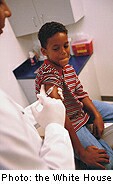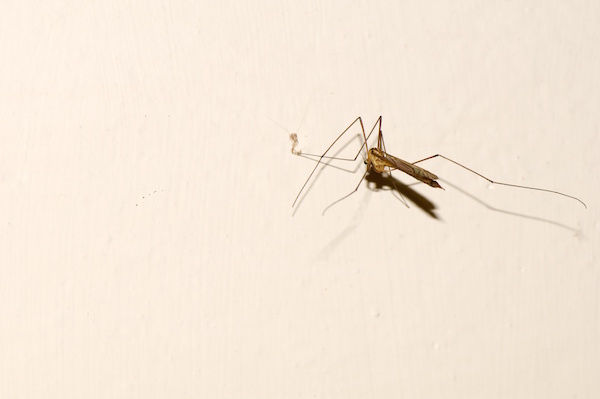
WEDNESDAY, Dec. 23 (HealthDay News) — Children and pregnant women are hit hardest by the pandemic H1N1 flu, two new studies confirm.
Both reports are published in the Dec. 24 issue of the New England Journal of Medicine.
“H1N1 flu poses serious risks for pregnant and postpartum women,” said Ken August, a spokesman for the California Department of Public Health, where the first study was conducted.
In that report, researchers collected data on 94 pregnant women, eight postpartum women and 137 women who weren’t pregnant.
Among the pregnant and postpartum women who were hospitalized for H1N1 flu, 22 percent were taken to intensive care units, and eight women died, August said.
August noted that the rapid test for H1N1 flu is not very good and the test doesn’t recognize many cases of the H1N1 flu, so treatment decisions should not be based on negative rapid tests, he said.
Six of the eight women who died had negative rapid tests, August noted.
“Physicians evaluating these patients should start prompt treatment with antiviral medication and monitor these cases closely,” August said.
Because of the risk to pregnant women from H1N1 flu, these women should get vaccinated against the H1N1 flu as well as the seasonal flu, he added.
In the second study, researchers looked at pediatric deaths from the H1N1 flu in Argentina. They collected data on 13 children who died from H1N1 swine flu and compared these deaths with deaths among children from seasonal flu in years past.
The investigators found that there were no deaths among children from seasonal flu, making the death rate among children from H1N1 flu 10 times higher.
To reduce pediatric deaths from H1N1 flu, the researchers state that early recognition and rapid treatment are essential. In addition, children should be vaccinated to prevent contracting the flu, they noted.
“This is not new,” said flu expert Dr. Marc Siegel, an associate professor of medicine at the New York University School of Medicine.
“Basically, these studies emphasize a point we have known for a while, which is that H1N1 is particularly problematic for the young and for pregnant women,” Siegel said.
The reason that the H1N1 flu hits these groups the hardest is that they don’t have immunity from exposure to other similar viruses, Siegel explained.
“With pregnancy there is an additional problem, since these women are immunocompromised to some extent,” he added.
Siegel also said these findings are in keeping with past pandemics. “The young are more at risk even in non-flu season, because there is no prior immunity to any flu,” he pointed out.
Seasonal flu does confer some immunity, Siegel added. “Over time, immunity to the H1N1 flu will build up and it will become a seasonal flu strain,” he said.
Another study, this one in ferrets, reinforces that point. Published in the Dec. 23 issue of Science Translational Medicine, researchers found that animals exposed to seasonal flu vaccine had more immunity to the H1N1 flu than ferrets never vaccinated against the seasonal flu.
The researchers discovered that a higher concentration of antibodies against seasonal flu in the ferrets increased protection from H1N1 infection.
Why the seasonal flu vaccine, although not able to protect against H1N1 virus, enhances the immune response isn’t known, as is whether or not this effect works in humans.
More information
For more information on H1N1 flu, visit Flu.gov.

